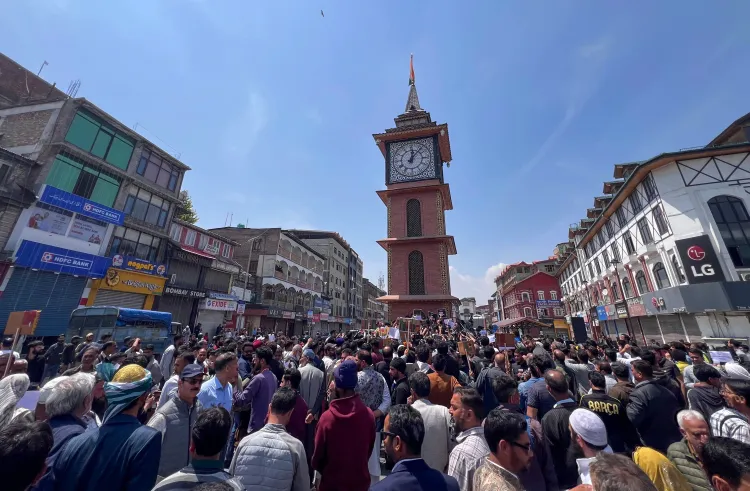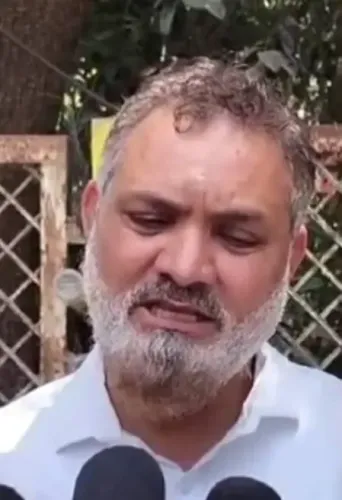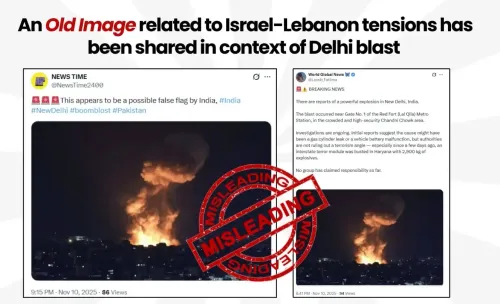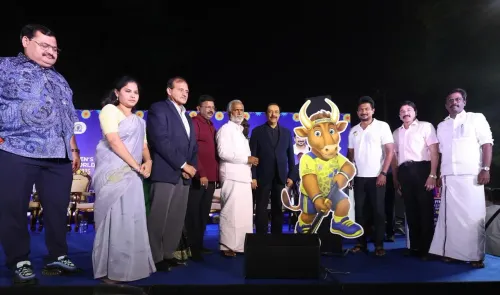Is It Time for Kashmiris to Firmly Reject Pakistan's Agenda?

Synopsis
Key Takeaways
- The April 22 Pahalgam massacre was a calculated act of retribution by Pakistan.
- Kashmiris are increasingly rejecting Pakistan's attempts to impose its agenda.
- The abrogation of Article 370 has led to a resurgence in peace and stability.
- Tourism and education in Kashmir are experiencing significant growth.
- Kashmiris must unite to counter external threats and embrace progress.
New Delhi, June 1 (NationPress) The tragic event on April 22 in Pahalgam was not merely a terrorist act; it was a deliberate act of retribution. Pakistan retaliated against the Kashmiris for their choice of peace, prosperity, and stability following the abrogation of Article 370.
Pakistan perceives this as a way to avenge the Kashmiri people for their decision to embrace a brighter future after the lifting of Article 370 -- opting for a path of growth and stability.
The Pahalgam incident was not only aimed at igniting religious discord but also served as a punishment for those Kashmiris who turned away from the agenda that Pakistan attempted to impose upon them to advance the two-nation theory.
For over thirty years, Pakistan has engaged in a treacherous game in the Valley. Initially, it found success. The wave of terrorism ushered in a reign of oppression. The Kashmiri community -- once celebrated for its secular, harmonious, and conservative traditions rooted in Sufism -- was fractured into factions: Hindus and Muslims, pro-India and anti-India, hardliners and religious extremists.
Disguised in religious language, the assertion of a distinct Kashmiri identity morphed into a so-called quest for 'Azadi'. The underlying scheme was transparent -- the radicalization of the Valley aimed to align Kashmir with the Islamic Republic of Pakistan, which has always viewed it as its “jugular vein.”
Pakistan's operatives in this 'mission' included the Hurriyat Conference and various militant organizations. At one time, nearly a dozen terrorist factions thrived in the Valley, with Pakistan inciting rivalry among them to adopt increasingly extremist positions.
Throughout the years, thousands of Kashmiris have perished due to terrorism, primarily at the hands of militants. Numerous schools and educational institutions were torched.
The Hurriyat, acting under Pakistan's guidance, established a parallel governance structure. They issued protest calendars, enforced edicts, and maintained an extensive network of stone throwers ready to act on command.
Tourism, the backbone of Kashmir's economy, suffered devastating losses. Even during times of elected governance, the situation remained precarious. Elections were boycotted, and most political leaders hesitated to criticize the Hurriyat or the terrorist organizations. Massacres and killings persisted.
Meanwhile, groups backed by Pakistan ensured that fear dominated the Valley. Another tool in their arsenal was narco-terrorism -- flooding Kashmir with drugs and destroying countless young lives.
Then came August 5, 2019. The Central government, led by Modi, abolished Article 370, segmenting the state into two Union Territories: Jammu & Kashmir and Ladakh. Pakistan was rattled. It had anticipated chaos and hoped its proxies would ignite violence across the Valley. However, nothing of the sort transpired.
Decisive action ensued. Leaders of the Hurriyat were imprisoned, terrorists were neutralized. Ordinary Kashmiris -- long oppressed by fear -- began to entertain the possibility of peace. Edicts ceased. Protest calendars disappeared. Stone pelting came to a halt. Youth shifted their focus to education, sports, and job opportunities. Tourism began to thrive once again. Filmmakers returned to the region.
In recent years, the Valley has welcomed over one crore tourists, including international visitors. Locals have initiated businesses and secured loans to grow in response to the tourism resurgence and increasing demand for handicrafts.
Education is thriving. Many Kashmiris have started excelling in the country's most challenging examinations. A sports culture is blossoming. A fresh sense of opportunity has emerged.
Yet, as Kashmiris embrace peace and progress, Pakistan is fiercely attempting to rekindle its failed agenda. Trained terrorists persist in infiltrating through perilous terrains, finding support among a small faction of both underground and overground associates.
However, the broad support for 'Azadi' that was prominent in the 1980s and 1990s has significantly diminished. People are now acutely aware of Pakistan's true intentions -- to destabilize Kashmir through terror and drugs.
This growing consciousness has unsettled Pakistan. In April, Pakistan's Army Chief Asim Munir, recently elevated to Field Marshal, delivered a disgruntled address at the Pakistan Military Academy in Khyber Pakhtunkhwa.
He stressed the two-nation theory, asserting that “Muslims and Hindus are two distinct nations, not one,” and that Muslims differ in religion, customs, traditions, thought processes, and aspirations.
A few days later, the Pahalgam massacre occurred.
India has retaliated both diplomatically and militarily. However, in Kashmir, the repercussions were immediate. Tourists vanished, and the tourism season, which had the potential to yield hundreds of crores in revenue, collapsed. This was precisely what Pakistan intended -- to undermine the livelihoods of ordinary Kashmiris.
The Pakistani establishment, perhaps envious of Kashmir's flourishing tourism sector and rapid infrastructural advancement, chose to strike at the core of its progress.
While Pakistan may believe it has disrupted Kashmir's momentum, this disturbance can be surmounted by the Kashmiris themselves. They have experienced the atrocities of terrorism. They have also savored the benefits of peace. Now is the moment for a decisive stance.
Pakistan is a failed state. Its military is more interested in profiting from chaos than serving its populace. Every region under its control is in turmoil.
It is time for Kashmiris to rise and declare two powerful words -- No means no.
Let the Pakistani establishment feel the repercussions of the Kashmiris who have chosen peace.
(Deepika Bhan can be contacted at deepika.b@ians.in)









